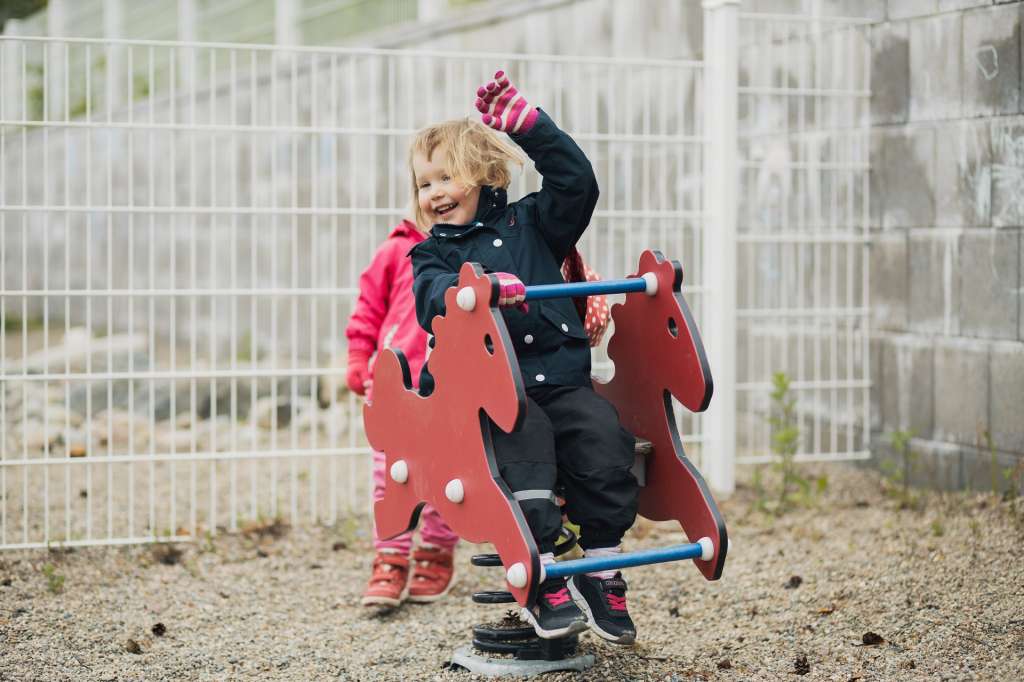
Article categories: Archive News
New day cares planned for Isolahti and Ristinummi
Published: 10.5.2023
Updated: 12.5.2023
New day cares are in the plans to be built in Isolahti and Ristinummi in the next few years. The neighbourhood of Gerby has a shortage of early childhood education places in Finnish, and the condition of the day cares in Ristinummi neighbourhood requires action soon.
There is a shortage of Finnish-language early childhood education places in the Gerby area, which currently has many small and operationally vulnerable units.
Gerby health centre was explored as an option for early childhood education, but the facilities do not fit the purpose. A new day care centre is now planned for the Isolahti neighbourhood.
– There is a plot of land next to the Isolahti school that would be suitable for a new day care centre. The benefit of this location is that it would help create stronger cooperation with the school, says Hanna-Leena Holmström, Director of Early Childhood Education.
Site ready for the new day care in Ristinummi
There are several day care centres in the Ristinummi area that would require major renovation in the coming years. It is generally thought that the best solution is to build a completely new day care in the area.
A site for a new day care in Ristinummi has already been identified along Kappelinmäentie, next to the existing Esikko day care.
– The condition of the day cares in the area is such that measures are required in the coming years. The construction of a new day care would also support the development of the Ristinummi centre, says Holmström.
The new day cares in Isolahti and Ristinummi will go through a space requirement study and then enter the decision-making process during the next two years.
The service network statement is the basis for the development and investments made in the facilities
The Early Childhood Education Service Network report was discussed at the Education Committee meeting on 3 May 2023. The report describes the current service network and its development needs, and records the proposed measures.
The study is based on a population projection for Vaasa. In addition, the increase in the participation rate in early childhood education and care, especially for children under 3 years of age, has been considered.
Currently, Vaasa has 37 municipal and 17 private day care centres, one group family day care centre, and 36 family day care workers.
The aim is to gradually phase out the 1–2 group day care centres
A major policy in early childhood education in Vaasa is to gradually phase out the smallest, 1–2 group units. Currently, this would policy apply to eleven day care units organised by Vaasa.
New and renovated units will be bigger, fitting 6–10 groups, depending on the needs and possibilities.
Holmström says that the operation of the smallest units is more vulnerable to challenges posed, for example, by finding substitute personnel or organising the catering and the cleaning.
– There is often a preconception that larger day care centres are institutions, but this is not true at all. The design and operation of new day cares puts a strong emphasis on the children having a designated space that secures privacy. All large day cares operate in small groups and stagger their activities so that even one group, let alone the whole day care, hardly ever has all its children in the same room at the same time.
Holmström also says that substitute arrangements and holidays, for example, are easier to organise in larger units.
– Arrangements can be made in-house, for example with a neighbouring group, so the adults are already familiar to the children.
An example of a new larger unit is the new Palosaari kindergarten, which is being renovated in the former Palosaari School building. It will eventually house all the units in the area: Palosaari Day Care, two groups from Kaptensgatan Daghem, and one group from Vikinga förskolan.
